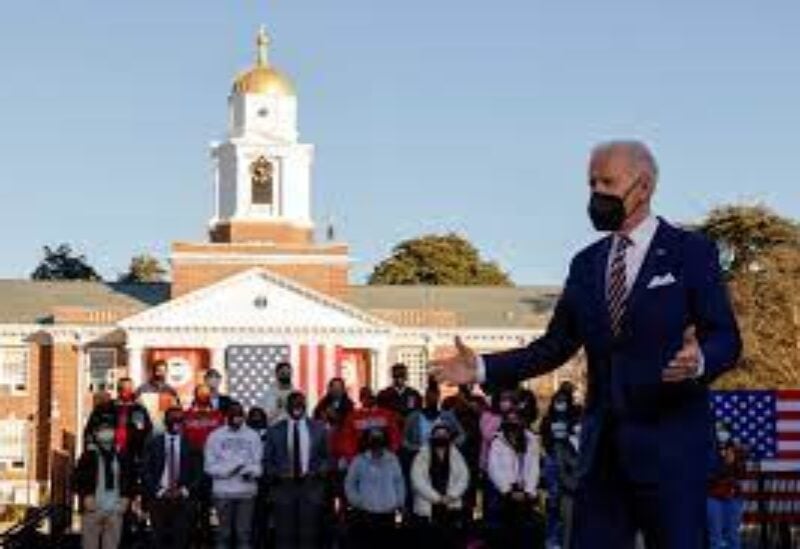
President Joe Biden’s attempt to mobilize Democrats on Thursday to change Senate rules and enact voting-rights legislation was thwarted even before he arrived in Washington by resistance from a key moderate legislator.
Senator Kyrsten Sinema of Arizona stated in a speech on the Senate floor on Thursday, less than an hour before Biden’s arrival, that the “filibuster rule,” which permits a minority of senators to reject legislation, was important to prevent the country’s political differences from deteriorating.
West Virginia Democrat Joe Manchin joined Sinema in rejecting Senate rule changes as Biden departed the Capitol following his discussion with Democrats.
Senate Majority Leader Chuck Schumer nonetheless announced late on Thursday that the Senate will begin debate on the legislation next Tuesday. If Republicans block that bill as anticipated, Schumer said he was prepared to seek a change in the Senate’s filibuster rule to win passage.
While officials were not anticipating any quick breakthroughs, Biden continued pressing his case with Sinema and Manchin into the evening. The two senators met Biden at the White House for a meeting that lasted well over an hour, the administration said.
None of the participants spoke to media afterwards. A White House official characterized the meeting as a “candid and respectful exchange of views.”
Earlier, when he left the Capitol, the president acknowledged his party may not succeed in getting a voting rights bill passed.
“I hope we can get this done, but I’m not sure,” Biden told reporters. “One thing for certain: Like every other major civil rights bill that came along, if we miss the first time, we can come back and try it a second time. We missed this time.”
Biden and many fellow Democrats have ratcheted up their campaign to pass voting-rights legislation after spending much of his first year in office on infrastructure and spending bills focused on COVID-19 relief, infrastructure and social safety-net programs.
They are pushing new legislation that they say would protect access to the ballot, particularly for minority voters, as Republican-controlled states enact new restrictions ahead of Nov. 8 congressional elections.
Non-white voters disproportionately support Democratic candidates for office.